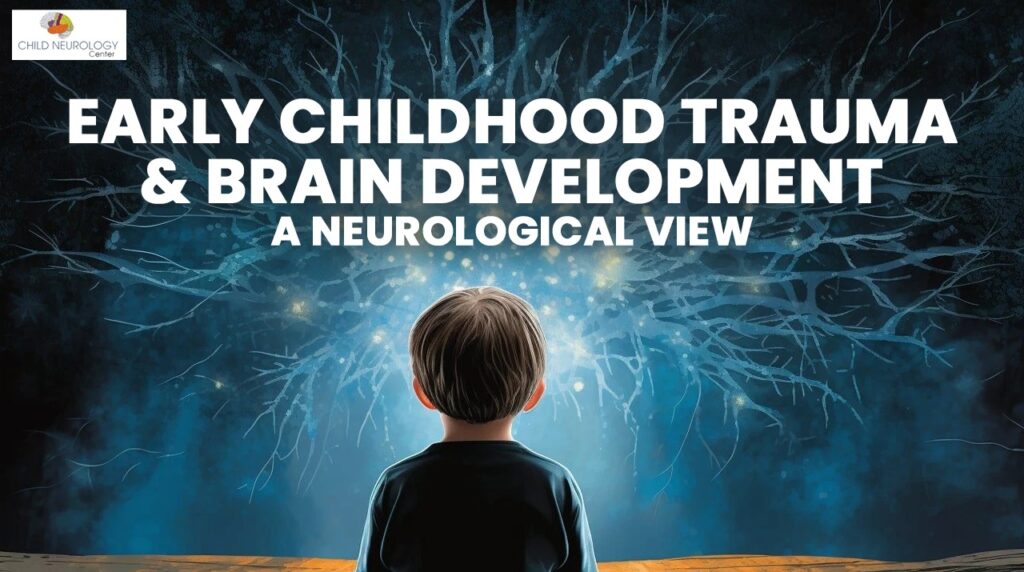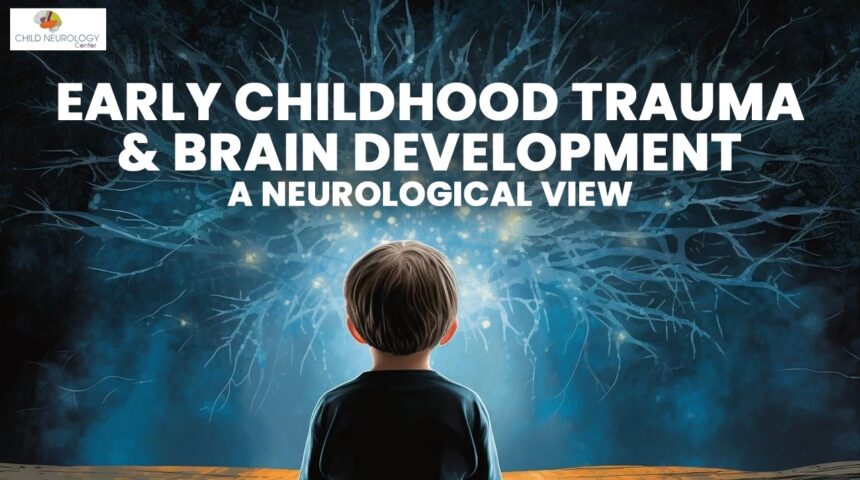
The basis of a person’s cognitive skills, emotional self-regulation and overall wellness is best developed during the early years of childhood. Recent studies show that trauma as a result of neglect, chronic stress, abuse or loss interferes with childhood brain development. As we will be discussing the consequences from a neurological point of view, it would be best to consider how the child can be helped by parents and professionals to adapt to these challenges.
Understanding Early Childhood Trauma
Experiences of stress during early years of development are referred to as childhood trauma. Such traumatic experiences can stem from a parent’s divorce, violence, physical and emotional abuse or accidents. Because a child’s brain is constantly growing and is very adaptable, trauma can alter the way it is wired like its immediate and long-standing effects.
The Neurological Effects of Trauma
Trauma triggers a child’s brain to activate the fight or flight mode. Trauma puts the individual, particulary young children into a lot of pressure. In turn, the body flooding it with stress hormones such as cortisol and adrenaline. While this kind of response is extremely important in life threatening situations, excessive or continued levels can cause damage to the brain’s structure and function.
1. The Function of the Amygdala – The Center of Fear for the Brain
Due to hyperactivity in the amygdala, a brain part that detects threats and processes emotions, children who undergo trauma are more likely to develop anxiety and fear. Most children who experience trauma during their early years are likely to experience heightened emotions. This is due to the increased and uncontrollable faux social norm stress-induced pressure. In forbearance, the lack of moderation and the increased stress mix will lead into further trouble managing that child’s emotions, eventually desensitizing them to emotional triggers.
2. The Hippocampus – Learning and Remembering Hurdles
Memories and learning are core activities performed by the hippocampus. While it shines in its activities, early timing trauma does greatly affect the hippocampus’ ability to perform and remember actions. Studies confirm that getting exposed to highly stressful situations for a long duration shrinks the ability to remember, learn, and perceive emotions. This results in most children that have undergone trauma being marked as academically low performers unable to control their volatile emotions.
3. The Prefrontal Cortex – Lack of Impulse Control and Poor Decision Making
The last to develop part of the brain is the prefrontal cortex, responsible for making and carrying out decisions, controlling impulses, and solving problems. The part of the brain that gets the most development slowdown due to trauma. Starting from self-restraint and spanning the vast area of focus, attentive social relations, trauma makes everything harder from school to hobbies to socialize. This explains the impulsivity marks along and targeting their focus in school that children who have had early trauma, or their caregivers, struggle with.
How Neuroplasticity Affects Recovery
Even with the negative consequences of trauma in early life, neuroplasticity or the ability to reorganize and form new connections makes recovery possible. With appropriate support and interventions, children have the ability to rebuild neural pathways that help them become more resilient.
1. Therapy and Intervention
Best paediatric neurologists can help evaluate a child’s neurological development with the use of trauma-focused techniques and provide therapy to address the challenges that come with it. These best child neurologists tend to recommend trauma-focused cognitive behavioral therapy and play therapy which allows the child to rewire their responses to stress and stressors.
2. Secure and Caring Environment
Providing children with a stable, caring and loving environment is one of the most important things to consider when healing the brain. Healthy and secure relationships as well as attachments with caregivers can help mitigate the impact of trauma making children feel safe, calm and even regulated emotionally.
3. Stress Relief and Mindfulness
Mindfulness and mediation even yoga are immensely helpful with calming down the amygdala while simultaneously performing other functions such as augmenting the prefrontal cortex. Relaxing these principles encourage emotional regulations thus improving brain health.
Looking for Expert Help
The fact that trauma impacts brain development makes seeking professional help critical. The best paediatric neurologist works with children and even offers medical examinations and specialized therapy intended to help them. A best child neurologist works with the younger population and proposes interventions that assist in the patient’s healing, including cognitive and emotional recovery.
Conclusion
Excessive early childhood trauma is believed to have a negative impact on the brain, however, the ability of the brain to adapt is a very hopeful and positive aspect. Provided there is help at the right time, a supportive environment, and proper professional help, patients are able to deal with difficulties posed by life. In the event that a child is suspected to be suffering as a result of premature trauma, obtaining the services of a best child neurologist is crucial.


